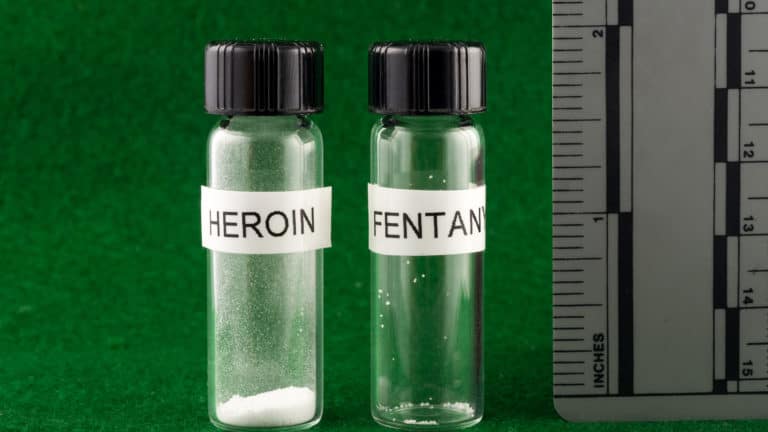Once regular use of an addictive substance ceases, unpleasant, painful, and sometimes dangerous side effects may occur. This is known as withdrawal. Defined by the American Psychological Association, withdrawal is a syndrome that develops after cessation of prolonged, heavy consumption of a substance, with symptoms varying by substance but generally including physiological, behavioral, and cognitive manifestations.
Withdrawal symptoms differ based on the substance of abuse, with some manifesting mild withdrawal symptoms while others yield painful and dangerous symptoms. Regardless of the substance that has been abused, withdrawal can be very uncomfortable, which is why it is highly recommended to seek a professional detox clinic to assist in the process. Clinicians at these facilities will monitor the withdrawal process and ensure the individual feels safe and supported.
How Long Does it Take to Withdraw From Fentanyl?
Fentanyl is the main driver behind the third wave of the current opioid epidemic. This powerful, fully synthetic opioid is approximately 50-100 times more potent than morphine and is responsible for a frighteningly high number of overdose deaths. According to the National Institute on Drug Abuse, approximately 59 percent of opioid-related deaths involved fentanyl in 2017 alone. While fentanyl abuse is extremely dangerous, withdrawal from this opioid is not much safer.
The length for Fentanyl withdrawal depends on the length of the addiction and the quantity of the drug regularly used. Those who have abused Fentanyl for a short time, or only used very little, may have a significantly shorter withdrawal period and display relatively mild symptoms.
In contrast, those who have struggled with Fentanyl abuse for an extended amount of time, or in large quantities, may experience an extended withdrawal stage and more dangerous symptoms. Withdrawal symptoms typically show up within the first 8-12 hours after use and last up to10 days. Rarely, Fentanyl withdrawal can take up to one month.
Fentanyl Withdrawal Symptoms
Symptoms of Fentanyl withdrawal vary based on the length of addiction. For the average individual, symptoms appear within the first day after use and last approximately ten days. If the Fentanyl addiction was severe, withdrawal symptoms can be life-threatening.
Symptoms include:
Profuse sweating
Sweating is common when going through withdrawal. This is the physical body’s way of ridding itself of all remaining traces of the substance.
Anxiety
An individual withdrawing from this highly addictive opioid is likely to experience increased levels of anxiety, restlessness and agitation. As the body adapts to the absence of fentanyl, the individual will gradually become hyper-alert and often have trouble sleeping.
Nausea and vomiting
As the physical body adapts to the absence of fentanyl, uncomfortable, flu-like symptoms occur. Nausea is one of the prominent flu-like withdrawal symptoms along with body aches and sweating.
Muscle aches and stiffness
Due to profuse sweating, vomiting and diarrhea that are likely to occur during the withdrawal stage, the body becomes extremely dehydrated. This intense dehydration causes muscles and joints to cramp up, producing uncomfortable aches.
Depression
Fentanyl abuse causes a chemical alteration within the brain. Once withdrawal begins, the individual may feel depressed as fentanyl is no longer altering neurotransmitter activity as was once frequently occurring.
Due to the severity of some of these symptoms and the potential for life-threatening side effects, clinical supervision within a professional detox facility is highly recommended.
Asheville Recovery Center Can Help
It is extremely important to seek help immediately if you or a loved one is struggling with fentanyl addiction or withdrawal. The founders of Asheville Recovery Center, as well as many of our addiction therapists, have struggled with addiction and now enjoy life in recovery. They understand the struggles of addiction and how difficult it is to overcome alone.
While we do not have a detox facility, we can refer you to a quality clinic where experts can supervise your withdrawal phase. Upon successfully completing the detox process, we will work with you to formulate a custom treatment plan designed to fit your individual needs. If you feel that you or a loved one is struggling with substance abuse, our specialists are on standby and ready to help. Call (828)518-6996 and speak with an addiction expert today so you can take the first step towards a rewarding life of sobriety.









